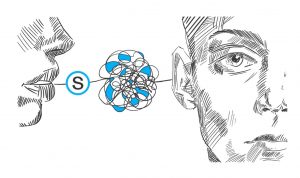How Creek academic culture contributes to fading mental health
April 4, 2021
At such a uniquely rigorous and demanding school like Creek, many students have been known to struggle with balancing their work load and mental health even before the pandemic.
But now that the pandemic has forced teachers to slow down the pace of many classes, more people are becoming aware of the exposed problems and flaws within the foundation of Creek’s academic culture.
And more students and staff understand just how difficult it has been for students to try to stay afloat mentally.
Still, it’s not as if Creek has completely ignored or avoided confronting the relentless mental health issues it’s been known to have.
The administration did implement and promote outlets such as advisory and Sources of Strength last year in the attempts to change the system, and they had the potential to support students and remain in place for a long time.
But unfortunately, they weren’t able to gain a lot of momentum, because the school year ended in March, and the pandemic hasn’t allowed them to return to an extent where they can make a substantial impact on students.
But it’s also difficult to promote effective resources for students when Creek’s entire culture is based around the idea that academics come first and mental health comes second.
While these resources are productive and important first steps to be taking, they will never successfully fix the entire system in the long run. Because rather than solely focusing on what resources Creek can provide for students who are struggling, the administration really needs to be concentrating on how to restructure a system that just isn’t functioning.
It’s the atmosphere of constant academic competition between students and their peers that needs to be diluted, so students don’t feel weighed down or pressured during their daily school life.
And the number of AP/Honors classes per student should be monitored in order to make sure students aren’t feeling pressured to take difficult classes. Students should be required to meet with counselors if they want to take more than five AP classes and discuss what their schedule could look like throughout high school more thoroughly.
The idea that students should only take classes because they “look good” and because it allows them to feel equal to other students, rather than because they want to and can handle it, is harmful and damaging to students’ perspectives of what high school should be.
The notion that school is all about winning, competing, and comparing oneself with peers and friends can be overwhelming in most Creek settings, and it’s why Creek has such a disproportionate number of students with mental health problems.
Students should feel as if they can breathe and not be overwhelmed by the idea that school is the most demanding aspect of their lives.
Although Creek has created resources that can help with these issues, the real change needs to come from the administration that school isn’t all about the rigor and appearance of what the “excellence of education” could look like. If there’s going to be a significant change in the mental health of students, the culture itself needs to be readjusted.
This story won first place Staff Editorial from CSMA.





















